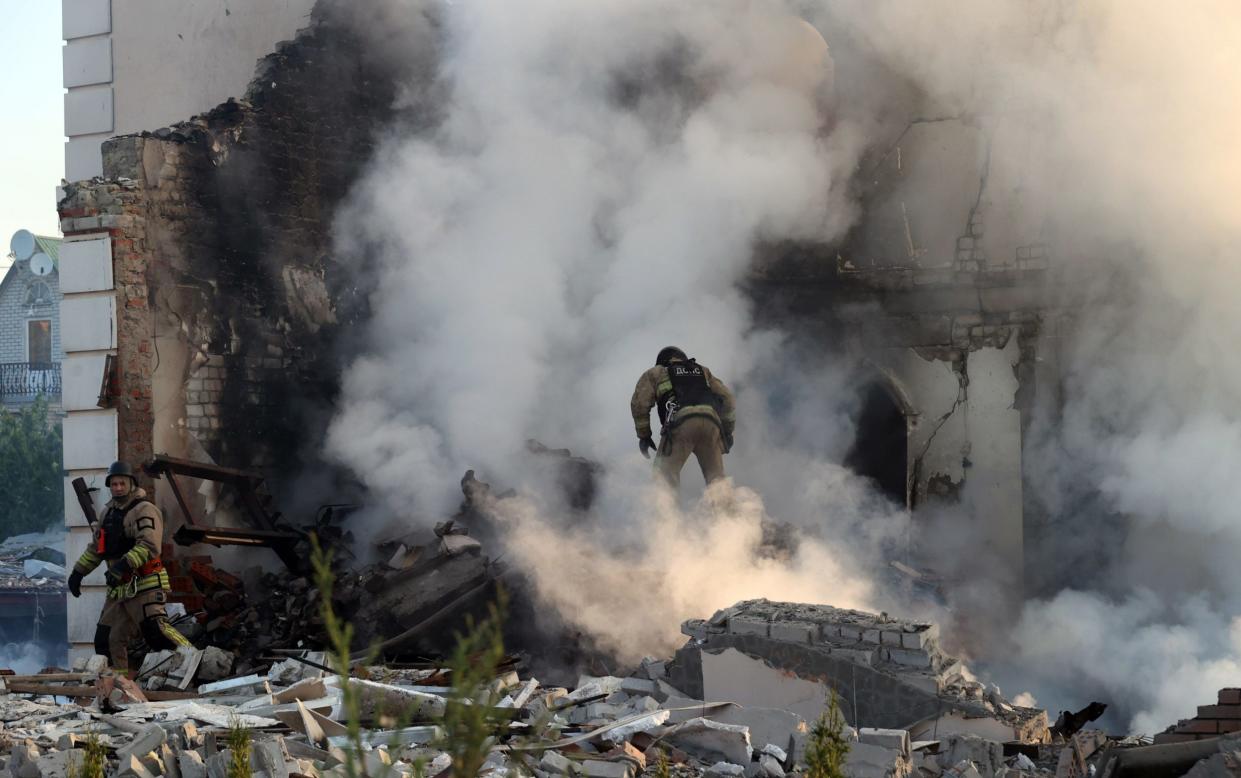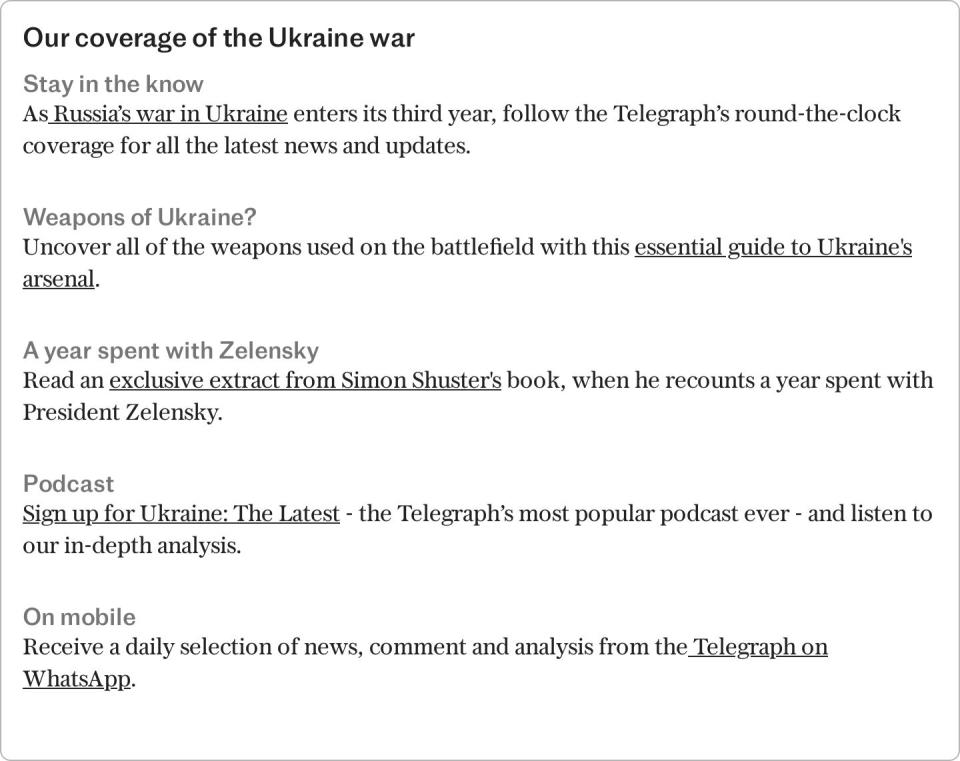Russia launches first cross-border attack in Ukraine

Russia has attacked a town near Kharkiv in one of its only cross-border attacks since its 2022 full-scale invasion of Ukraine.
The surprise dawn attack on the border town of Vovchansk near Kharkiv comes as Moscow intensifies its offensive ahead of a US weapons deal to resupply Ukraine.
Videos on social media showed Russian forces firing a barrage of Soviet-designed Grad missiles towards Vovchansk, which lies only 45 miles from Kharkiv.
Russian Telegram channels also said there was an attempted breakthrough by ground forces but Ukrainian military commanders said they had repelled the assault.
Oleh Syniehubov, head of the Kharkiv Regional Administration, said: “There were unsuccessful attempts by Russian sabotage and reconnaissance groups to break through the border.
“Not a single metre has been lost.”
In a separate attack on Kharkiv, authorities reported that at least two people were injured in an intense Russian missile attack that destroyed 26 houses.
Residents have drawn up plans to flee Kharkiv if the situation deteriorates, while one Ukrainian MP said that schools there have now closed.
Top Russian officials have started talking about Kharkiv as a target again for the first time since Russia’s military retreated from the outskirts of the city in September 2022.
Russian forces have been dominant across the front lines for the past eight months as they leverage their bigger arsenal and troop numbers.
The British Ministry of Defence said that Russia increased its attacks along the front line by 17 per cent in April, and the US-based Institute for the Study of War said that the Kremlin was determined to push its dominance of the battlefield.
“This reflects current battlefield conditions and the intent of the Russian military command to secure gains before the arrival of Western military aid to the front lines,” it said.
The Kremlin has moved quickly to bolster its army, having secured weapons deals with North Korea and Iran last year, converted civilian factories into arms factories and sent thousands of convicts to war.
US lawmakers, meanwhile, had delayed for months a major weapons deal with Ukraine, only passing the £48 billion package at the end of April. Ukraine has also struggled to recruit new members to its military.
Analysts said that although Russia now enjoys a clear material advantage, Russian progress on the battlefield has been slow, and that the threat to Kharkiv may have been overstated.


 Yahoo News
Yahoo News 
